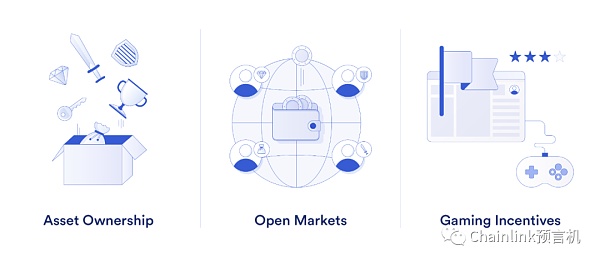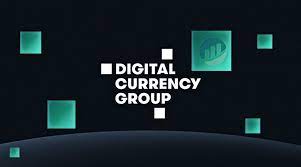What is GameFi?
What's GameFi?Blockchain games are creating a new reality defined by three characteristics: an open economy, user ownership, and players as important participants.
These next-generation games feature tokenized in-game items, characters, and currency, allowing players to trade freely with one another.
GameFi provides a normalized market that has historically been fraught with friction, difficult to enter, and monopolized by the vast majority of game publishers, which harms player interests.
This is in stark contrast to most video games today. The roles you play, skins you purchase, and items you earn are usually conditional. They typically operate under strict, technically enforced rules that often prohibit players from exchanging in-game assets. It is these rules that have led to the emergence of gray markets for video games – unofficial and unapproved markets where valuable game assets (and even player accounts) are traded for money.
- From NFTs to L2 network Loot Chain, what new story will Loot tell?
- What changes have been made to the point incentive system with the official launch of Blur V2?
- Comparison of NFT lending protocols: Will a price drop lead to a cascade of liquidations?

Blockchain games provide an open in-game economy where players have sovereignty over digital items and currency
What is GameFi?
GameFi, also known as “game finance,” was originally created by Yearn Finance founder Andre Cronje and refers to gamified decentralized finance (DeFi) protocols. However, given the direct link between blockchain games and the real economy, GameFi has since evolved into a term that refers to the financial nature of blockchain games.
It’s no secret that game items and currency are valuable. The rarest CS:GO (Counter-Strike: Global Offensive) skins are worth thousands of dollars, and there are now a multitude of gray markets that allow in-game currency, items, or accounts to be exchanged for real money. On one side of the equation are sellers – those who have spent time, money, and effort in the game to own these digital commodities. On the other side are buyers – people willing to pay for what sellers have worked hard to earn for various reasons (limited availability, social status, not enough time to grind, etc.).

BitSkins is a widely used third-party marketplace for buying and selling CS:GO items with real currency.
In this context, GameFi is not a new concept. It simply uses blockchain technology to regulate a market that has historically been fraught with friction, difficult to enter, and sometimes even completely banned by game publishers. Tokens are a transformative technology designed to replace these barriers, currencies, and even accounts.
How Blockchain Empowers GameFi
Today, in-game currency and items are typically stored and distributed by game publishers on proprietary backend servers. Essentially, these game items and currencies exist on a computer, and game publishers can change them at will. They control what players can do with their digital assets, who owns them, and how they use them. This is not the case with blockchain games.
In crypto games, the blockchain is a global decentralized computer network that plays the role of a centralized server. Smart contracts are applications that run on top of the blockchain and can create and facilitate the movement of tokens, which are typically non-fungible (NFT) or fungible (FT).
What does this mean? Well, blockchain-based in-game assets set a new standard for digital asset ownership. When in-game items are NFTs, players own them. They cannot be taken away or erased, and anyone should be able to do something with their stuff – like sell it, trade it, use it to buy things – without the explicit permission of the game developer.
Why You Need to Understand GameFi?

There are many reasons why games that offer GameFi functionality are more attractive to players.
Asset Ownership
Blockchain gives players sovereignty over digital assets: no one can take away the assets you have in your blockchain wallet. While this is not just a privilege of GameFi, but a feature of any blockchain-based asset, in-game asset ownership is a core feature that GameFi provides to players. This is a big part of what makes blockchain games stand out.
Before blockchain, ownership was a gift – a decision made by game publishers. For GameFi and blockchain games, it is a fundamental right. By changing the default setting of player ownership from “no” to “yes,” GameFi and blockchain games are reshaping the way players think about the value of their time, effort, and attention.
Players battle each other using their decks in the game. By playing and winning games, players can progress on leaderboards and earn GODS tokens – which can be used to buy new card packs or staked as part of the in-game governance mechanism.
Sorare
Sorare is a fantasy sports game where enthusiasts from around the world can collect NFT player cards and participate in tournaments based on the real-life performances of real players from famous sports leagues around the world, just like regular fantasy sports leagues.
Sorare players join leagues and select their lineup for each match day. Their lineup performance, as well as the rarity of each card, can earn them points – with greater rarity cards earning players more points. New cards are sold through auctions and rewarded to winning players.
What is GameFi?
While GameFi introduces a novel currency incentive concept to gaming, the most important elements of any game are its entertainment, immersion, and ability to connect.
The GameFi economy merely creates a new standard for game developers to empower players who enjoy gaming and strive to progress in-game. Typically, players hear GameFi heralding a new player economy – one where players can replace their day jobs by playing games. While the future is unpredictable, the greater story behind GameFi is the use case it brings to digital assets.
All physical products are tradable. Passing a pen to someone at school, selling your Magic the Gathering cards to a friend, giving an old school uniform to your child – these are all examples of transactions that cannot be prevented because that is how the real world operates. GameFi brings the same concept into the digital world. Now, players can build economies around in-game items and currencies that rightfully belong to them.
We will continue to update Blocking; if you have any questions or suggestions, please contact us!
Was this article helpful?
93 out of 132 found this helpful
Related articles
- Blur V2 is officially launched, what are the changes in the points incentive system?
- The Rise of Web3 Social
- Full text of South Korea’s first independent “Encryption Act”: Insider trading carries a maximum sentence of life imprisonment.
- Has Web3 effectively solved the problems in Web2 marketing?
- First Impressions of Threads: Is this “Twitter Killer” any good?
- Meta launches Twitter competitor Threads:
- Review: “Twitter Killer” Threads officially launched. How does it perform?






